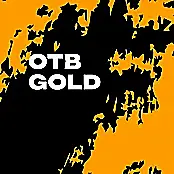If you watched the excellent first season of Narcos on Netflix, you're in luck as Season 2 of the hit series returns on Friday, September 2nd.
For those who haven't seen it, Narcos tells the story of the rise of notorious drug lord Pablo Escobar and Season 2 continues on his story.
The Colombian's tentacles spread far and wide during the 1980s when he became a nefarious presence politically and socially.
But as we discussed with Michael Zimablist, the director of the brilliant ESPN 30 for 30 documentary The Two Escobars on Team 33 last October, he also had an influence in the world of Colombian football.
His passion for the game
A clip or two from Narcos does show Escobar playing 5-a-side football with his associates and that is an accurate depiction of the centrality of football to his life.
"Pablo loved the sport. He grew up in Medellin, Colombia, in a country that loved the sport. All the way up until his death, he was still very enamoured with the sport both as a fan, watching it and even as a player. Even in his later years, when he was on the run from the authorities, his right-hand man Popeye, who was the head of his assassin squad, tells stories of how he would wear cleats (football boots) everywhere he went so that he could sprint away from the authorities. His sister told me that he died in his football cleats," Zimbalist told us.
It even got to the point where he would host private fixtures on his property.

Pablo Escobar, left, and Jorga Luis Ochoa, right with hat, the two leaders of the Medellin cocaine cartel, are shown at a bullfight in Medellin, Colombia, in 1984. Picture by: / AP/Press Association Images
"Hacienda Napoles was this opulent estate and ranch that he had. It had a private zoo and everything else you could imagine, where they did go and professionally could play private teams that Pablo and other drug lords would attend and put a million dollars on their team. It was sort of the pre-Fantasy Football days and they were kind of doing it themselves, picking players from different professional teams and pitting them against each other in their ranches."
Socially, he also built football pitches in poor areas and sponsored children's football teams - all the while engaging in violence and drug-trafficking.
Club football
In the 1980s, Escobar became associated with Atletico Nacional, a preeminent club from his home city of Medellin that would win the 1989 Copa Libertadores (South American Champions League), although as Zimbalist explained, he wasn't the only cartel boss who invested in football clubs as others often used them as fronts to launder money.
Referees were also under threat from Escobar and other drug lords and allegedly, he ordered the assassination of one who had been bribed by a rival cartel boss.
There is the case of referee Alvaro Ortega who was assassinated in November 1989 shortly after a decision which went against Nacional, with Escobar alleged to have ordered the murder according to Popeye.
"That day I was beside the boss. America (a Colombian club) beat Medellin because of Alvaro Ortega. Pablo was very offended and he ordered the referee to be found and assassinated," Popeye says.
Escobar met his own end four years later by the authorities.
Download the brand new OffTheBall App in the Play Store & App Store right now! We've got you covered!
Subscribe to OffTheBall's YouTube channel for more videos, like us on Facebook or follow us on Twitter for the latest sporting news and content.








